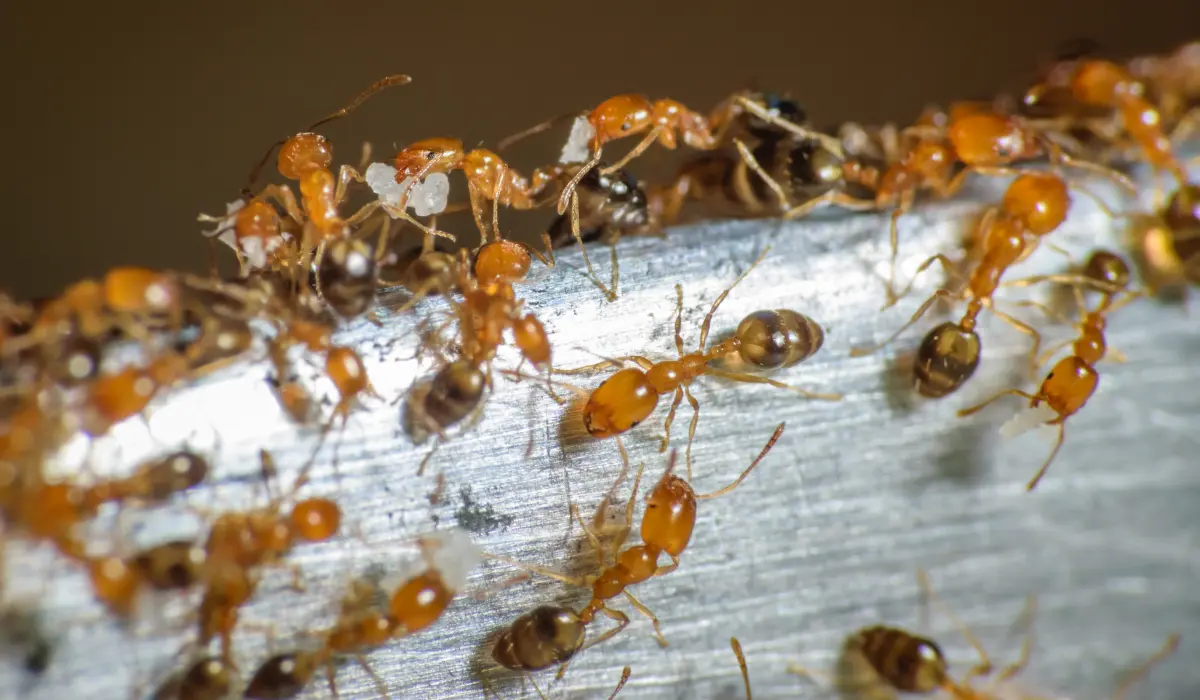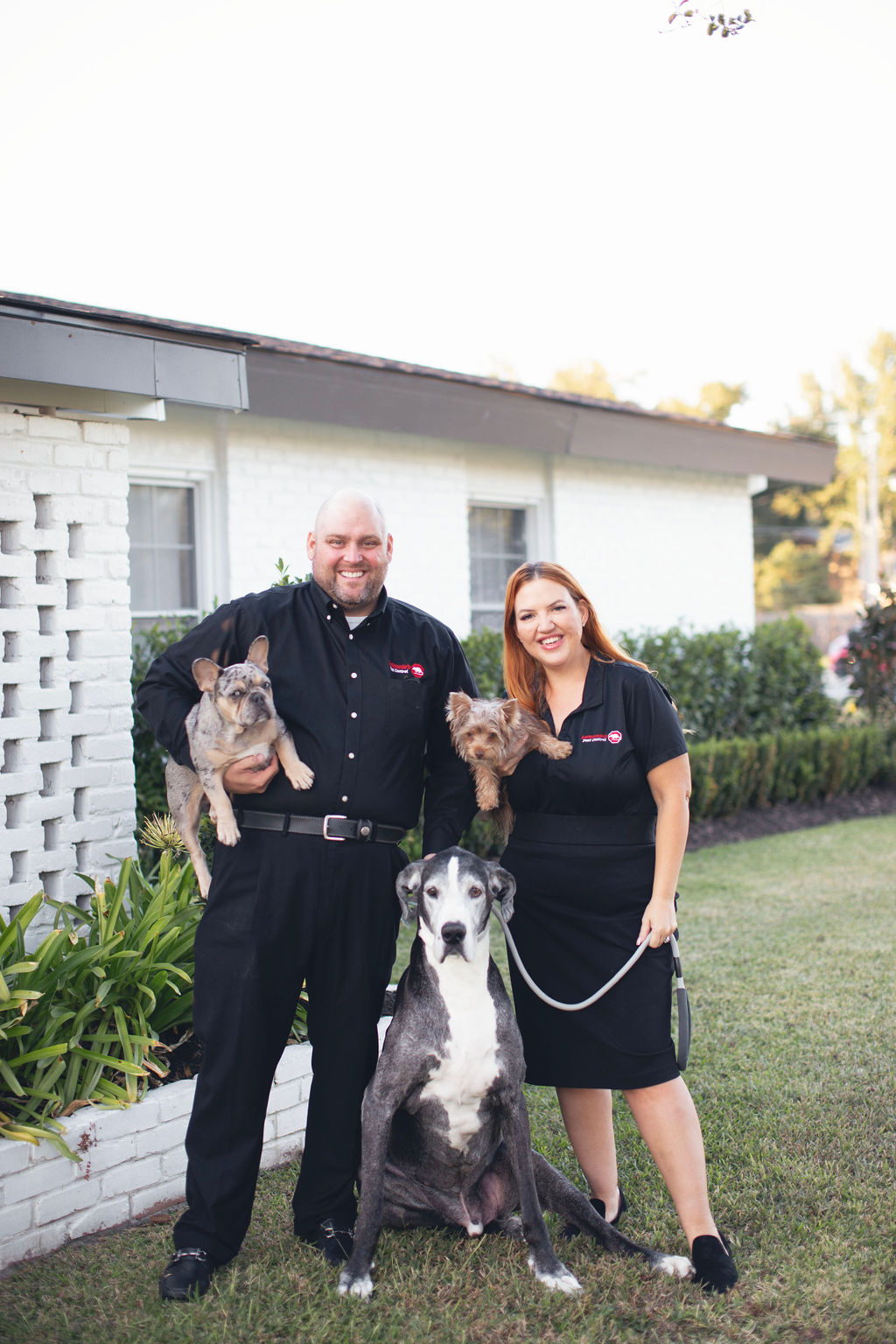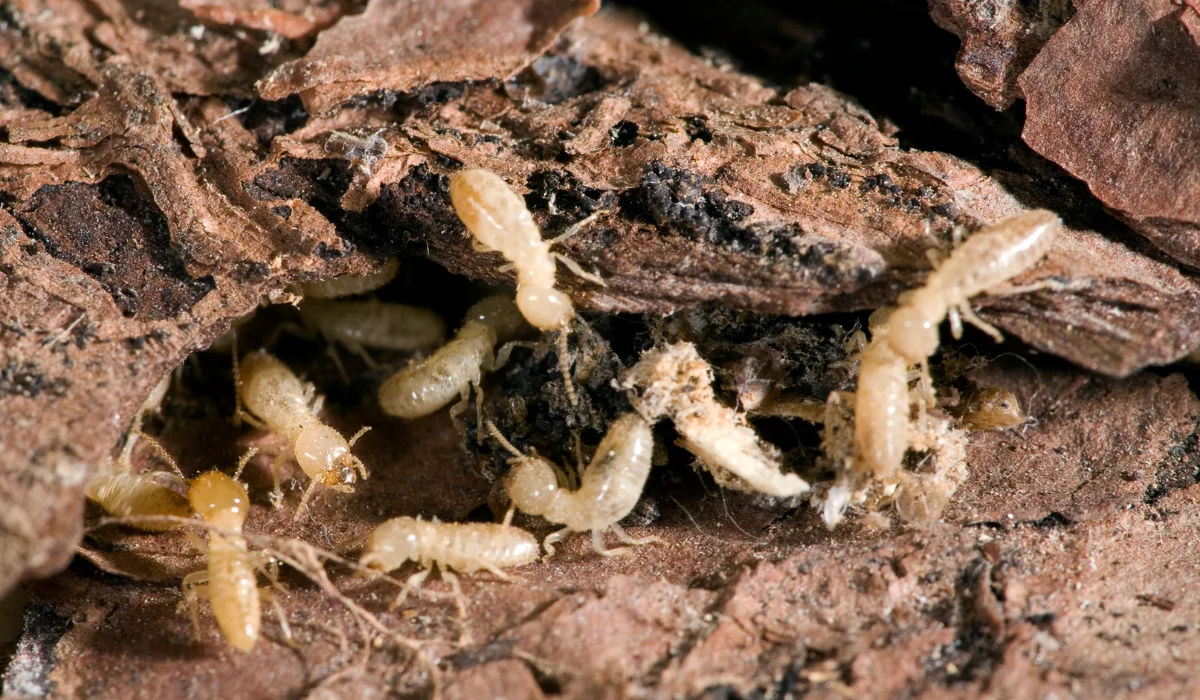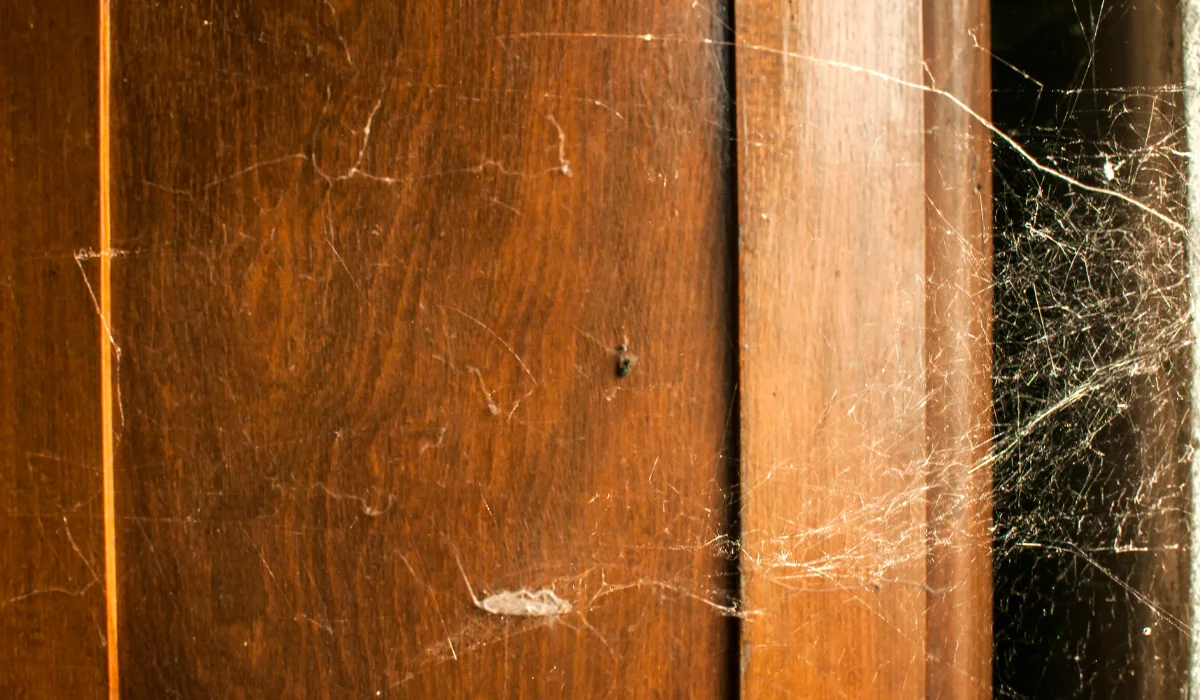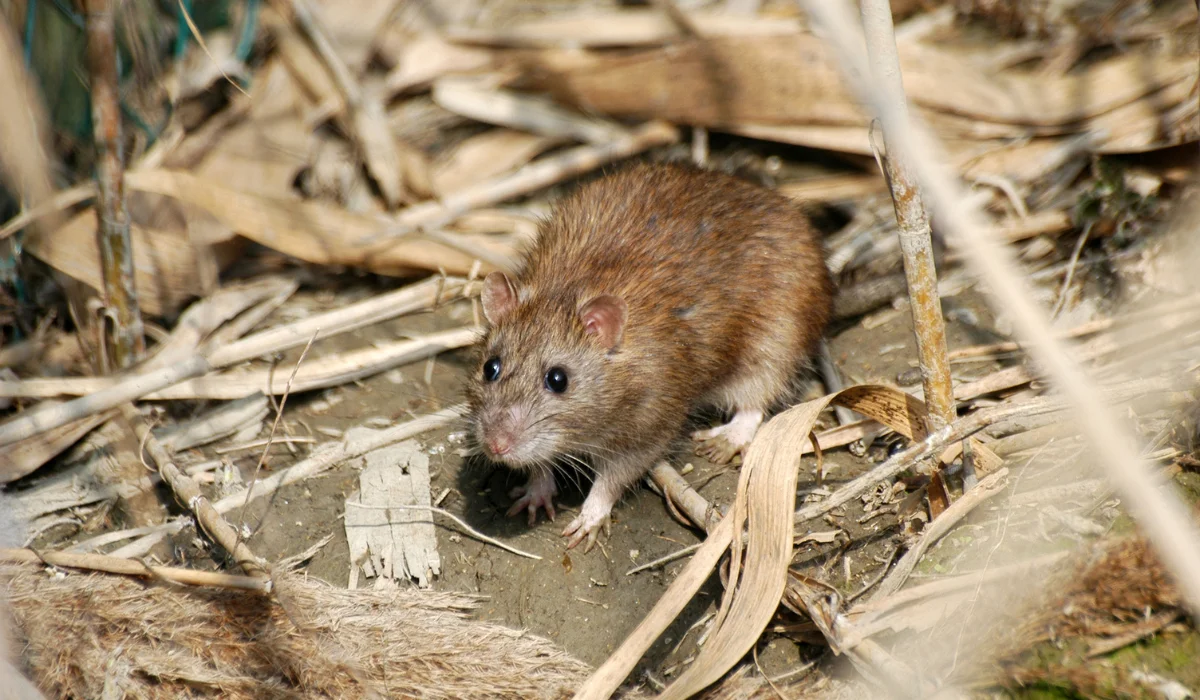Pharaoh ants are a surprisingly common problem in Louisiana, especially during warmer months. These tiny pests can rapidly invade homes, posing challenges for homeowners and pest control professionals alike.
What makes them particularly tricky to deal with? Keep reading to explore their characteristics, how to identify an infestation, and effective management strategies to keep these ants at bay.
Key Takeaways
- Pharaoh ants are small, reddish-brown insects that form large colonies, often thriving in warm, humid environments.
- They do not have stingers but are known for their ability to invade spaces in large numbers, feeding on sweets and proteins found in human environments.
- Signs of an infestation include large colonies within buildings, food contamination, and noticeable trails along baseboards or countertops.
- Effective control methods include maintaining clean surfaces, sealing entry points, and considering professional pest control for severe cases.
WHAT ARE PHARAOH ANTS?
Pharaoh ants are invasive species that thrive in various environments. They are easily identifiable due to their distinct features, which sets them apart from other types of ants.
| Features | Description |
|---|---|
| Size | Typically 1/16 to 1/8 inch in length |
| Color | Reddish-brown; varies slightly |
| Antennae | Bent and segmented |
| Distinguishing Trait | Petiole with two nodes |
Unlike some of their cousins, such as carpenter ants or red imported fire ants, Pharaoh ants lack stingers. Instead, they rely on their large numbers and ability to invade crevices and homes to avoid confrontation.
Behavior And Diet
Pharaoh ants show fascinating behavior patterns, making them adept at surviving in urban environments. They are social insects that form large colonies, often comprising thousands of individuals.
These ants are particularly drawn to food sources, such as spilled sweets and meat proteins. They are known to forage actively, scouting for food in homes and other buildings.
Invasive in nature, they outcompete many native ants, such as pavement ants and Argentine ants, for resources. Their adaptability and prolific breeding contribute to their challenging presence in many areas, especially Louisiana.
WHERE DO PHARAOH ANTS LIVE?
Pharaoh ant nests are often in warm, humid environments. They prefer temperatures ranging from 75°F to 90°F. This species often seeks shelter in areas that provide food, moisture, and protection from potential threats.
While they can be mistaken for other small ants, such as odorous house ants, little black ants, or crazy ants, their specific nesting behavior sets them apart.
They can quickly establish new colonies, which can lead to large populations. Typical locations they are found include:
- Indoor environments, especially in hospitals, nursing homes, and other healthcare facilities.
- Residential buildings, often nesting in wall voids, under floors, and in insulated areas, making them a common household pest.
- Commercial settings, such as food service areas, grocery stores, and hotels, where their small size allows them to infiltrate food storage.
SIGNS OF PHARAOH ANT INFESTATIONS
Pharaoh ants can be tricky, but certain signs can help identify an infestation. Here are some key indicators:
| Signs | Description |
|---|---|
| Pharaoh Ant Colonies | They often form large colonies, sometimes spanning many areas within a building. |
| Dead Insects | Many dead ants can indicate a colony is in distress or under attack from a pest control method. |
| Food Contamination | Signs of food tampering, such as tiny holes in food packaging or spilled substances. |
| Pathways | While less visible due to their small size, you might notice persistent trails along baseboards or countertops. |
| Nesting Sites | These are difficult to find as they’re often hidden in wall voids, plumbing pipes, or electrical wires. |
HOW TO GET RID OF PHARAOH ANTS
While they don’t bite or sting, this species of ants carries pathogens like salmonella or streptococcus. Thus, it is crucial to address infestations promptly.
Effective strategies to carry out include:
- Regularly wipe down surfaces, especially in the kitchen.
- Identify and seal any cracks or gaps around windows and doors.
- Use airtight containers for human and pet food storage.
- Check behind appliances and in wall voids.
- Use DIY ant bait stations for temporary relief
- Fix any leaks and avoid leaving standing water.
- Consider commercially available pesticides for ant control.
- Hire a professional ant exterminator for a year-round pest-free guarantee.
SHOULD YOU CALL THE ANT EXPERTS?
Taking on a Pharaoh ant problem alone can lead to incomplete solutions. DIY pest control methods can sometimes worsen the situation by spreading the colony. If you discover a Pharaoh ant infestation, calling a pest control service might be a good idea.
Whether you’re in Baton Rouge or New Orleans, seeking expert help should be easy. For immediate intervention for a severe infestation, let Lajaunie’s ant control specialists tailor a solution that’s right for your home.
 By: LaJaunie's Pest Control
By: LaJaunie's Pest Control 